On top, you’d have plastic pitchers roughly filled with chilled green tea, the thick layer of crushed ice pellets sloshing melodically with each step, and a bottle of whisky (typically, something like Johnnie Walker Black Label or even Chivas 12-year-old) placed alongside, ready for mixing.
5 Hong Kong craft beer makers to watch, plus beer events in October
5 Hong Kong craft beer makers to watch, plus beer events in October
Easy to drink, and with caffeine to boot, it was just the thing to fuel the singing fest into the small hours, though dangerously quaffable. But the whisky green tea cocktail, in its most basic form, is no longer top of mind.
“Customers can still order [the drink] but it’s not as popular as it was,” says a spokesperson for Hong Kong’s ubiquitous Red MR karaoke bars. “The trend we see is customers now tend to drink cocktails and highballs instead.”
Much like the dreaded Long Island Iced Tea or Midori Sour, whisky and green tea never really made it into the canon of cool – perhaps, until recently.
This past July, Chivas Regal dropped a big marketing campaign in collaboration with local cocktail bar Draft Land, as well as street artists, to reframe the whisky and green tea cocktail for a new generation of drinkers.
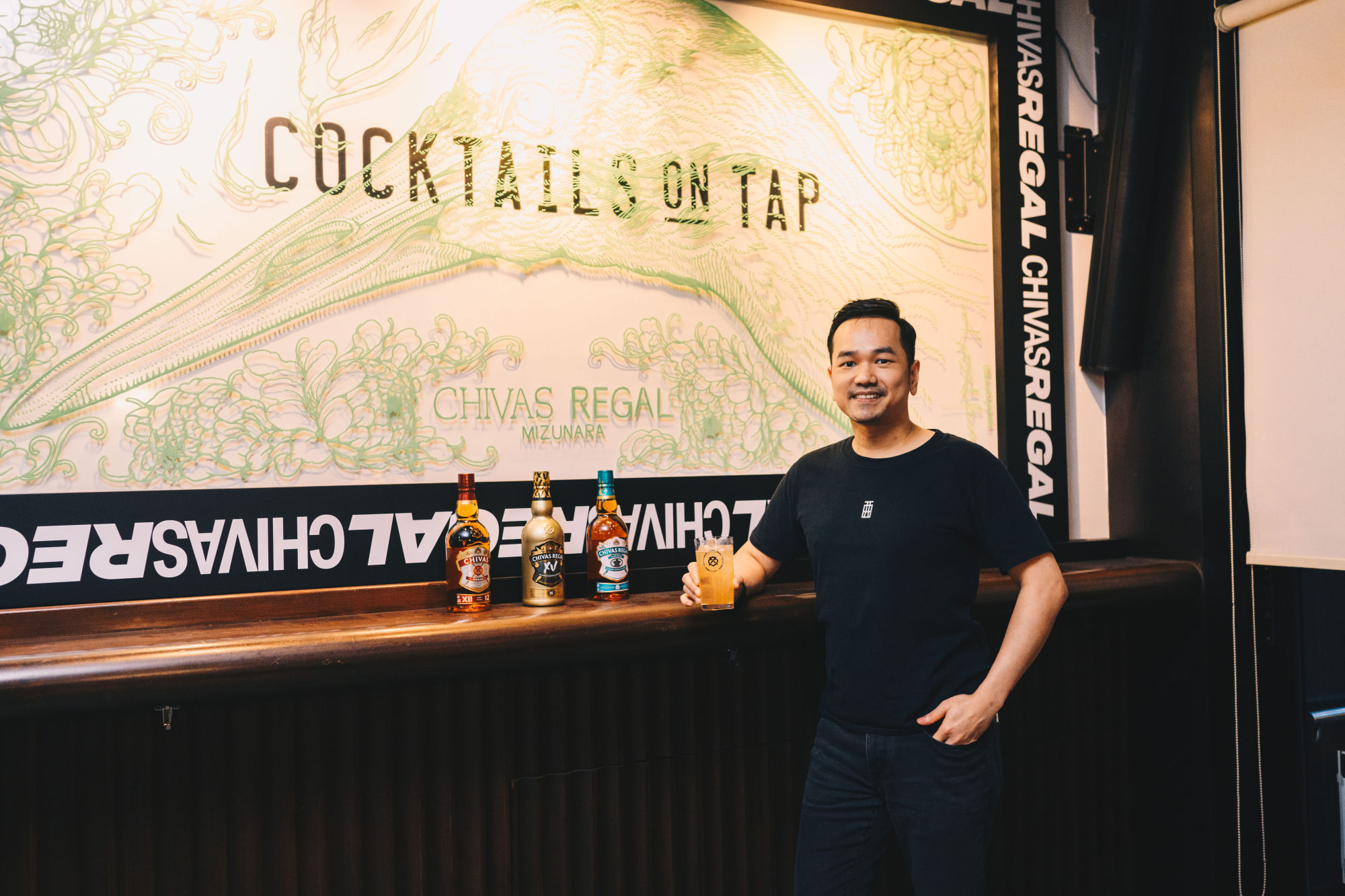
Describing Chivas x green tea as the “iconic classic cocktail”, they tapped the talents of leading bartenders Antonio Lai and Alex Ko to create three “retro vintage-style” tea-infused whisky cocktails. Orchard Bloom, for example, marries a base of Chivas 12 with jasmine tea and apple juice, accented with a dash of honey from local apiary Po Sang Yuen Bee Farm.
For Charlene Dawes, founder of Tastings Group (which runs Draft Land and other bars including Quinary and Room 309), the drink’s hold on Hongkongers is understandable.
“It’s something that made sense [back then] and it still makes sense today,” she says. “Sometimes, if you have something that is very short-lived, it’s because it’s popular but not necessarily good to eat or drink. But when things keep coming back, there’s always a reason – that it actually works.
“It’s just like bubble tea. I thought it was dead 10 times. But still, people drink bubble tea. It’s just slightly adjusted, but it’s there.”
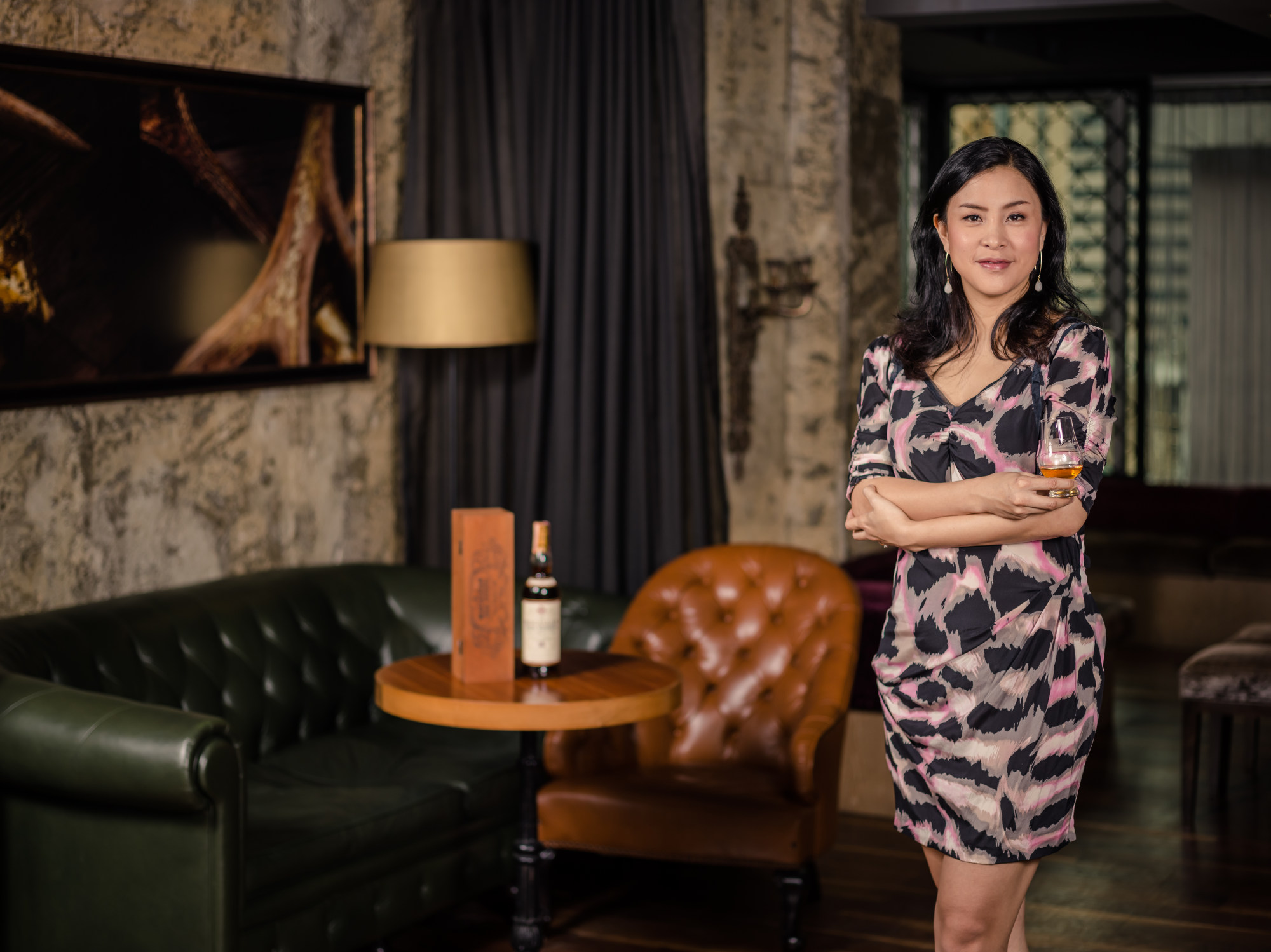
She recalls that her first taste of Scotch was likely to have been in a whisky and green tea cocktail when she was younger.
“When you’re young, you wouldn’t just start drinking whisky. It’s expensive. The cheaper drinks in my era would have been vodka – it wouldn’t have been gin either, as gin was an old man’s drink,” she laughs.
Dawes says that using green tea as a mixer was more approachable than the other popular drink at the time – the whisky highball, with soda water in place of tea.
“When there are new drinkers who are a little unsure about whisky, green tea helps a lot,” she says.
Surprisingly, the cocktail has since cropped up at other top bars around town, too. At the St Regis Bar, the BLK 6 is a mix of Johnnie Walker Black Label, Ryukyu 1429 Kaze Awamori, hojicha (roasted green tea), sansho pepper cordial, olive brine and London Essence soda water.
The drink was created by bartender Taki Li when she was working at St Regis Hong Kong. “My experience [of this drink] is also from karaoke bars and local bars,” she says. “People would like some mixers to cut down the alcohol, [and] honey green tea is light and brings some sweetness.”
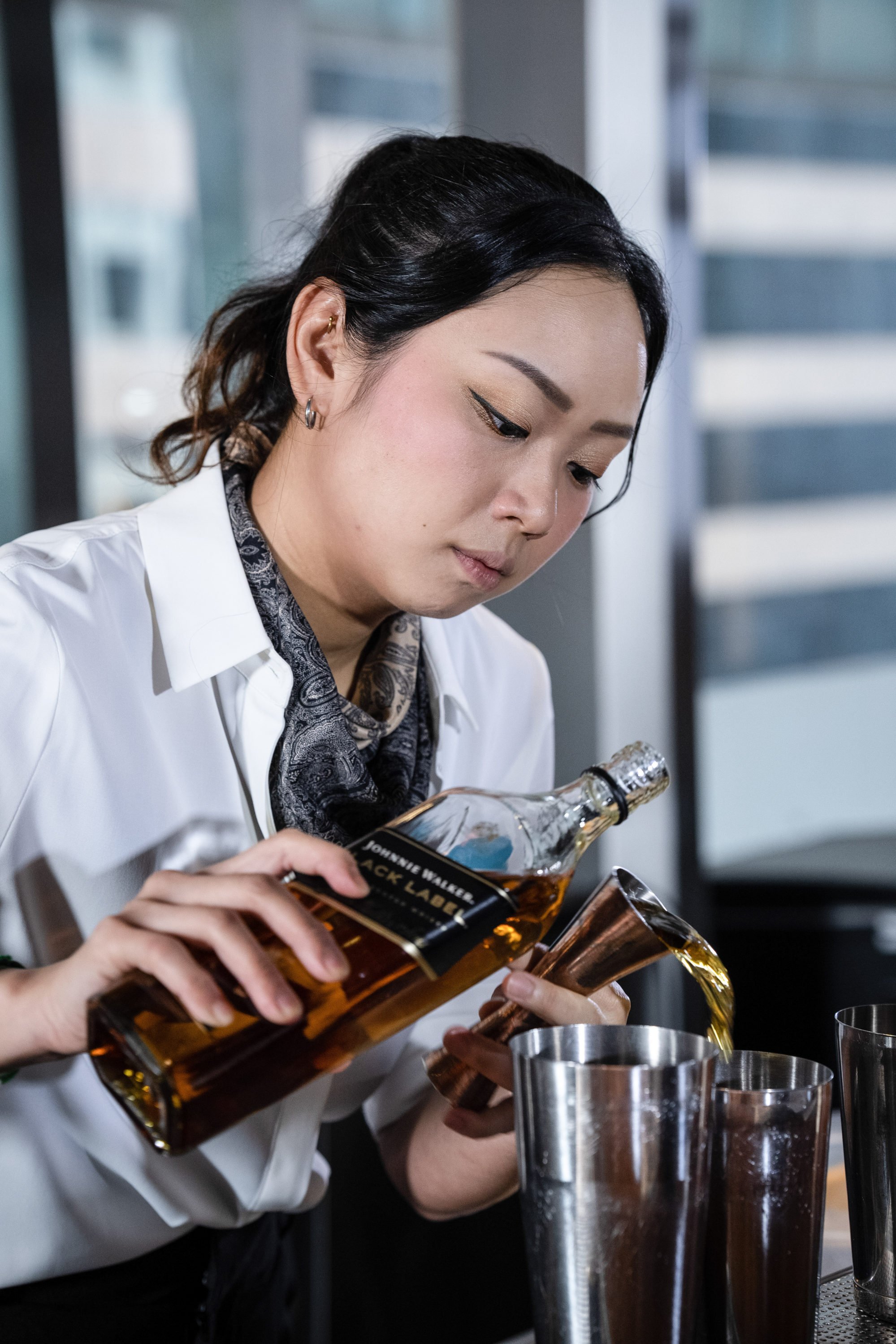
She also points to the popularity of oolong tea used for highballs in Japan at the time, which may have been another cultural influence that crossed over to Hong Kong.
“The inspiration behind the BLK 6 is Johnnie Walker Black Label, one of the more popular whiskies among local bars,” Li explains.
The name BLK 6 requires a little insider knowledge, too – the letters refer to Black Label, while the number is a homophone for “green” in Cantonese.
Li, who now works at Bar Leone in Central, suggests that future iterations of the green tea whisky cocktail could use more floral Chinese teas – such as jasmine – as a base.
“Different kinds of tea would be an inspiration, since we have plenty of tea options in Hong Kong, and tea culture is very popular here.”
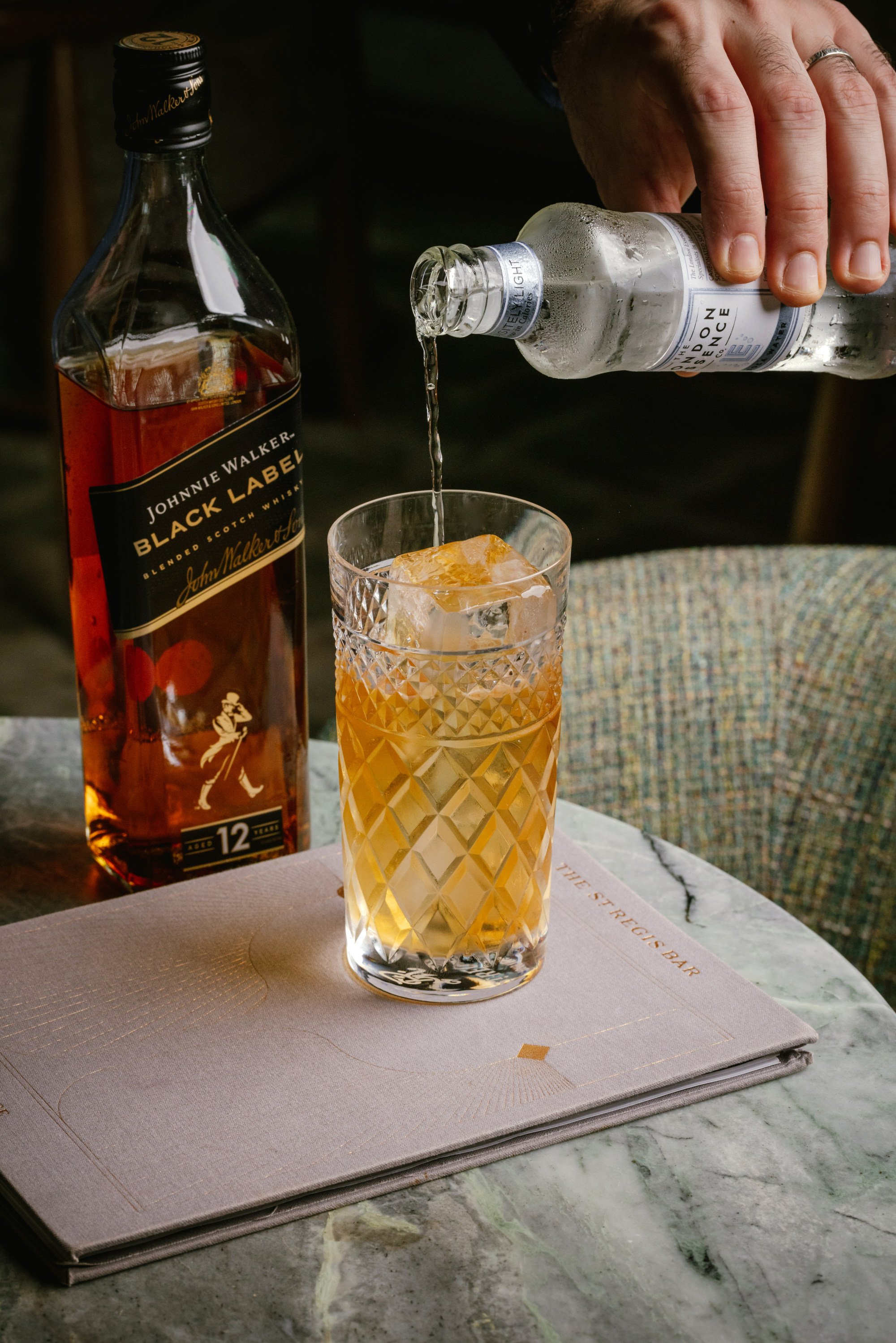
Johnnie Walker itself has leaned into the association, recognising that karaoke culture has embraced its whisky as an iconic part of the experience. It has also recently released recommended cocktail recipes featuring its signature blended whiskies.
The Johnnie and Green Tea Highball, for example, suggests combining green tea syrup, lemon juice, green tea kombucha, pineapple juice and soda water with its Black Label whisky.
“[Black Label] is rich, complex and incredibly well-balanced, full of dark fruits, sweet vanilla and signature smokiness,” says Lewis Au, marketing director for Johnnie Walker’s parent company, Diageo Brands.
“The delicate matcha flavour of green tea mixes the smooth and smoky finish and creates a neutral, refreshing drink, which suits the Asian palate perfectly.”
Matcha also features in a whisky green tea cocktail at the newly reopened 001 bar in Tai Kwun. Bar director Sky Huo explains that while blended whiskies work well with the freshness and tannins of green tea, she has added extra levels of flavour and opted for a smokier whisky as a base.
Bitter truth for Chinese craft beer: expats are out, local tastes are in
Bitter truth for Chinese craft beer: expats are out, local tastes are in
Named What We Do in the Shadows (a reference to the 2014 vampire mockumentary written by comedians Jemaine Clement and Taika Waititi), the drink serves up a mix of Laphroaig Quarter Cask whisky, blended Scotch whisky, fino sherry, kombu dashi and grassy matcha. The whisky is processed using the milk-wash method, which adds a silky, milk tea-esque texture, says Huo.
“For me, it’s a really wide spectrum of flavour,” says Huo. “It has the combination of whisky, umami, green tea, sea, tropical fruit and you balance it out. When you drink a martini, it’s straightforward. But when it comes to this kind of a drink, I’m giving you more on top of your whisky and green tea. It’s not that karaoke combo.”
But while the drink has levelled up in terms of perceived sophistication – Red MR now offers an Earl Grey Whisky cocktail that is zhuzhed up with elderflower syrup and yuzu liqueur – the appeal will always be in its grass-roots origins.
One advocate who might bring this Hong Kong karaoke favourite into the Japanese market is Holly Graham, author of Cocktails of Asia and co-founder of the soon-to-open bar Tokyo Confidential.
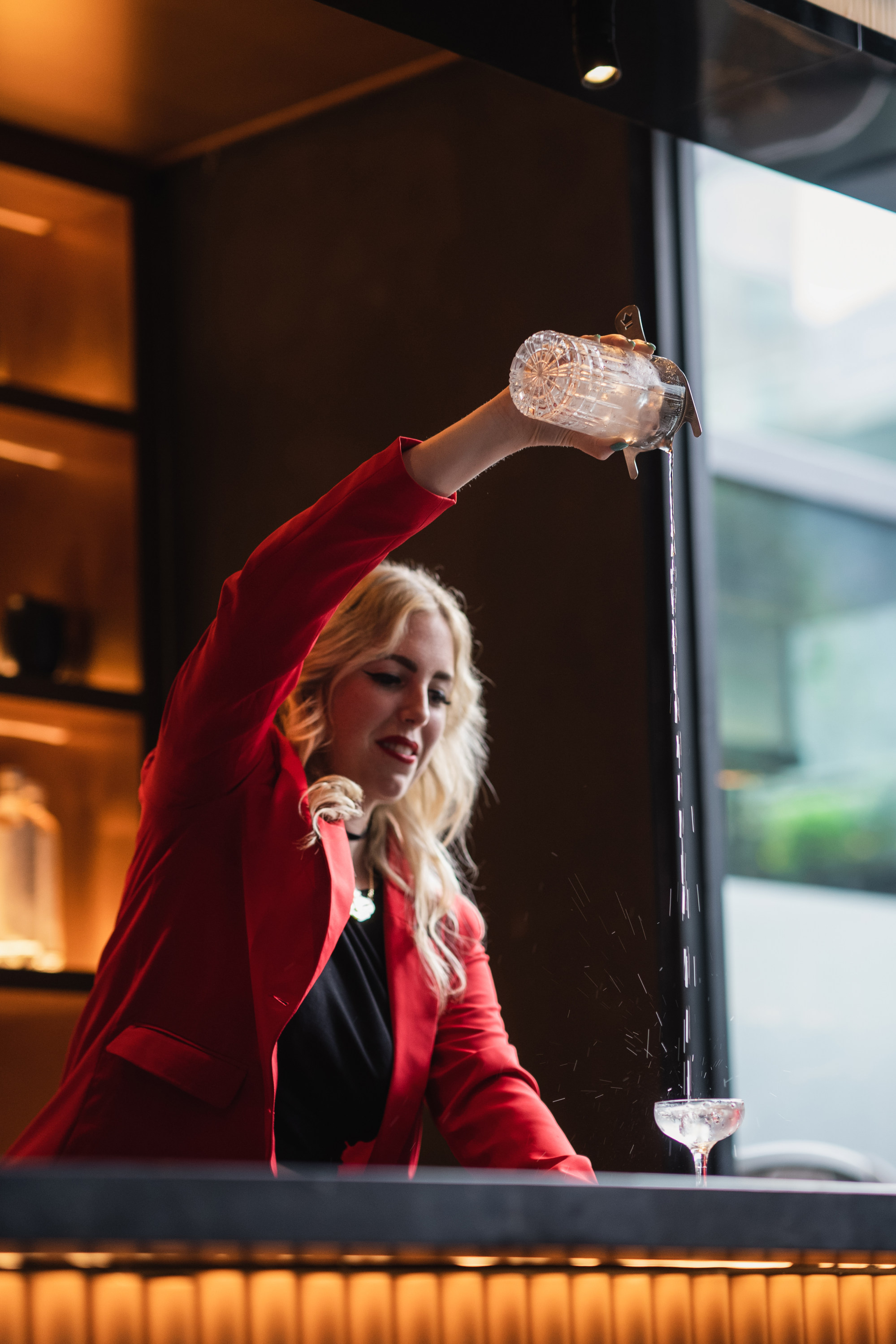
Graham, who recently relocated from Hong Kong to the Japanese capital, reveals that she was once tapped to create a series of Hong Kong-inspired cocktails for a client. While the drinks were never officially released, she shares that one of the creations she concocted was named the KTV Sour – a direct reference to karaoke bars so beloved by Hongkongers – that combined green tea-infused whisky, calamansi juice and rice syrup.
“The green tea can be quite bitter, so the rice syrup rounds it out nicely,” says Graham.
On why she felt compelled to dream up a cocktail such as this, she recalls fondly: “It always reminds me of when I first moved to Hong Kong and drank in local bars in Mong Kok, where I was living, and Prince Edward. It was inevitably accompanied by an impromptu KTV session with the uncles!”

